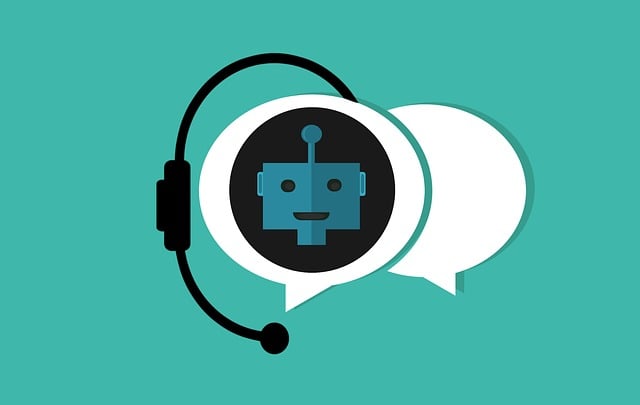Chatbot marketing for marketing automation leverages AI assistants to drive efficient lead generation and qualification. These chatbots offer 24/7 engagement, personalize shopping experiences, and scale interactions without cost escalation. By automating data collection, lead qualification, and inquiry responses, businesses improve customer experience, free up human agents, and gain a competitive edge with better lead quality and conversion rates. Measuring success focuses on lead generation, conversion rates, user engagement data for continuous improvement.
In today’s digital era, businesses are turning to chatbot marketing as a powerful tool for streamlining lead qualification processes. This strategy offers unprecedented potential for enhancing customer engagement and optimizing marketing efforts through automated interactions. By integrating chatbots into your marketing strategies, you can effectively capture leads, qualify them promptly, and nurture relationships—all while reducing manual workload. This article explores these aspects, providing insights into the benefits, techniques, metrics, and analysis of chatbot marketing for marketing automation.
- Understanding Chatbot Marketing Potential
- Integrating Chatbots for Lead Automation
- Efficient Lead Qualification Techniques
- Measuring Success: Key Metrics and Analysis
Understanding Chatbot Marketing Potential

Chatbot marketing represents a powerful tool for businesses, especially in the realm of marketing automation. By leveraging AI assistants, companies can automate various aspects of their lead generation and qualification processes, enhancing efficiency and effectiveness. Chatbots can engage with potential customers 24/7, providing instant responses to common queries and collecting valuable data that helps streamline the entire sales funnel.
In the context of ecommerce automation, chatbot marketing plays a pivotal role in creating personalized shopping experiences. These AI-driven tools can guide users through product recommendations, offer tailored suggestions based on browsing history, and even facilitate the checkout process. Moreover, chatbot automation allows businesses to scale their customer interactions without significantly increasing overhead costs, making it an attractive solution for modern marketing strategies.
Integrating Chatbots for Lead Automation

In today’s digital era, businesses are increasingly leveraging chatbot marketing to streamline lead qualification processes and optimize marketing automation. By integrating AI assistants like sales chatbots into their strategies, companies can automate routine tasks such as gathering customer information, qualifying leads based on predefined criteria, and providing immediate responses to common inquiries. This not only enhances the overall customer experience but also frees up time for human agents to focus on more complex and personalized interactions.
Chatbot automation offers significant advantages in terms of efficiency and cost-effectiveness. Sales chatbots can operate 24/7, ensuring that potential customers receive prompt attention regardless of their location or the time zone. Furthermore, these AI assistants can be tailored to understand and respond accurately to customer needs, improving lead quality and conversion rates. By leveraging chatbot marketing for marketing automation, businesses can achieve a competitive edge in generating and nurturing leads effectively.
Efficient Lead Qualification Techniques

In the realm of chatbot marketing for marketing automation, efficient lead qualification techniques have become a game-changer. Chatbots, powered by AI automation, can effectively engage with potential customers, gathering valuable data and insights in real time. By leveraging ecommerce AI, these virtual assistants can ask targeted questions, understand buyer personas, and immediately categorize leads based on their level of interest and purchase intent.
This streamlined approach to lead qualification not only saves businesses time but also enhances the overall customer experience. Chatbot automation ensures that every interaction is personalized and relevant, allowing for a more refined nurturing process. Moreover, it enables marketing teams to focus on high-potential leads, increasing conversion rates significantly.
Measuring Success: Key Metrics and Analysis

Measuring success is a vital aspect of any marketing campaign, and chatbot marketing for marketing automation is no exception. When evaluating the effectiveness of your chatbot strategy, several key metrics come into play. First and foremost, tracking lead generation and conversion rates is essential. This involves monitoring how many potential customers the chatbot engages with and the subsequent number of qualified leads generated. For instance, an AI automation agency might measure the success of its chatbot by assessing the conversion rate from initial interaction to scheduled demos or free trials.
Additionally, analyzing user engagement data can provide valuable insights. Metrics such as average conversation length, response time, and customer satisfaction scores help gauge the quality of interactions. By studying these factors, marketers can identify areas for improvement in their chatbot marketing campaigns, ensuring they deliver an optimal user experience while effectively qualifying leads.
Chatbots are transforming lead qualification processes, offering significant advantages in efficiency and customer engagement. By leveraging chatbot marketing for marketing automation, businesses can streamline interactions, provide instant support, and capture valuable leads. Integrating these AI-driven tools with strategic techniques ensures qualified prospects, ultimately driving sales growth. Measuring success through key metrics allows marketers to refine and optimize their approach, making chatbot marketing a powerful strategy in today’s digital landscape.
